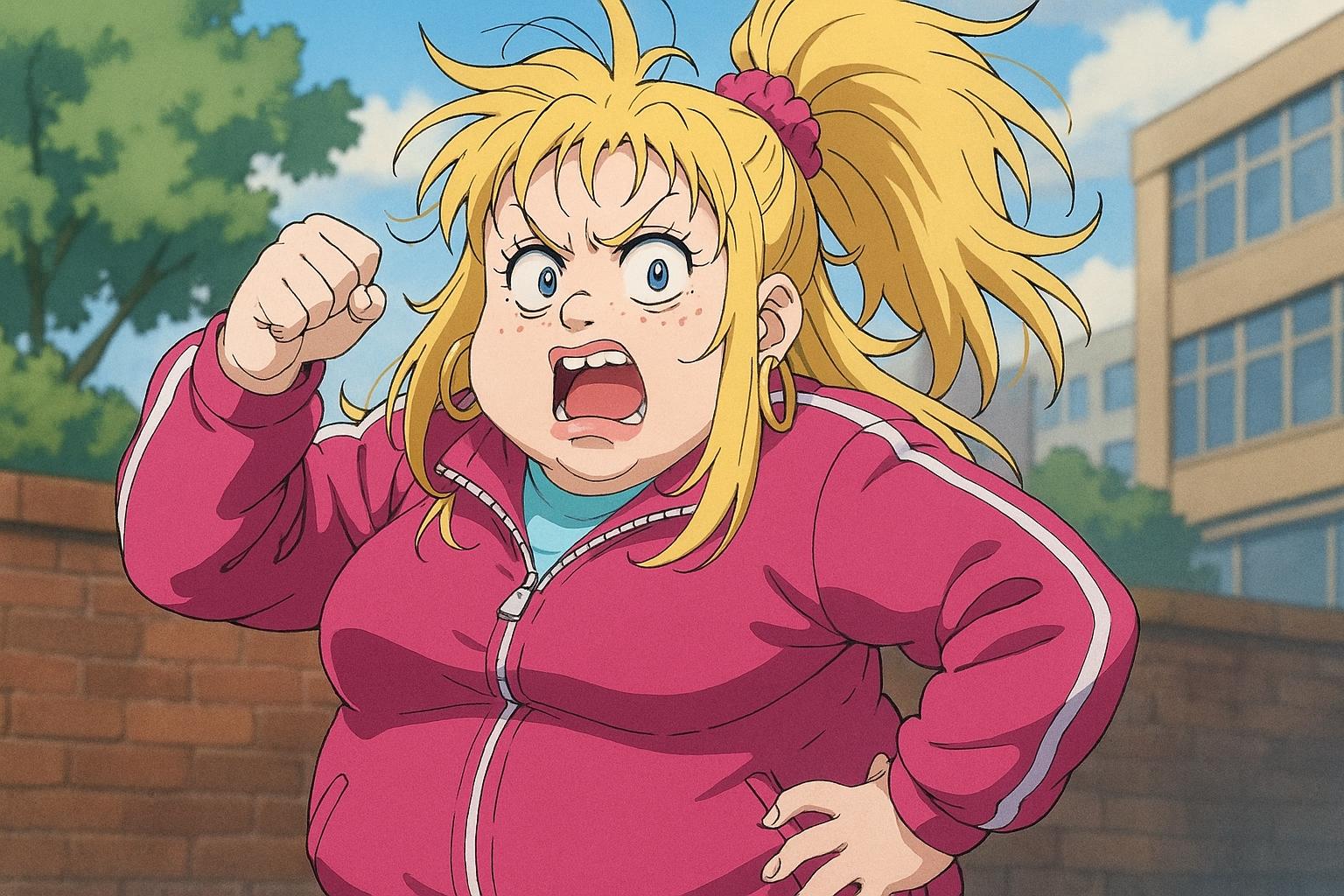Growing up immersed in the classic British comedy landscape of "Only Fools and Horses," "Dad's Army," and "Fawlty Towers," it's notable that "Little Britain" somehow evaded my childhood radar. This cult phenomenon of the early 2000s, acclaimed for its distinctive brand of humour, had shaped a generation's comedic sensibilities. Yet, as I ventured into its world from the vantage point of 2025, I was met with an unsettling mixture of nostalgia and discomfort.
Curiosity drove me to explore "Little Britain" on BBC iPlayer, a platform that has seen the show undergo significant scrutiny over the years. Despite its iconic status, the series has faced considerable backlash. Several episodes have been pulled, and the show itself has been removed from streaming services, including Netflix, due to its problematic use of blackface and other outdated representations. In June 2020, Matt Lucas and David Walliams publicly apologised for these portrayals, recognising that such depictions were not just inappropriate but harmful. The creators’ remorse signifies the broader cultural shifts regarding racial representation and sensitivity in media that have become increasingly vital in contemporary discourse.
As I watched, nostalgia was immediate upon seeing characters like Vicky Pollard, portrayed by Lucas with chaotic energy and trademark physicality. Her absurd ramblings about coursework, laced with nonsense, captured a vibrant, if somewhat disjointed, slice of British comedic tradition. The absurdity echoes a comedic lineage threaded through the likes of Catherine Tate, yet the charm of Vicky's antics felt starkly contrasted by the context of today's more robust discussions around identity and representation.
The episode progressed, and I encountered the character Emily Howard, played by Walliams. Initially presented as a “fellow who likes to dress up as a lady,” her antics sparked uncomfortable reflections. As she paraded her outsized femininity against a backdrop of outdated stereotypes, the attempt at humour fell flat. It’s difficult to discern whether the sketch served as a critique of social norms or merely perpetuated them. The sensitivities of 2025 highlight a consciousness around gender identity that starkly contrasts with the complacency of the show’s original airdate.
Then came Lou and Andy, two characters who effortlessly showcased the comedic talent of their creators, seamlessly shifting between roles while maintaining impeccable comic timing. In their sketch set in an opera house, the blunt honesty of Andy's remark—“I don’t like it”—was a breath of fresh air, cutting through self-consciousness to deliver a moment of genuine laughter. This ability to bridge the mundane and the absurd highlights why they became cornerstones of British humour.
Yet as I continued, I was met with stark contrasts to that light-heartedness, particularly with a sketch involving gender. One line stood out: “Unlike other countries, Britain has people of two genders – women and men.” This statement resonates uncomfortably in 2025, as society's understanding of gender moves toward a more inclusive dialogue. It's a testament to how much cultural conversations have evolved that a routine joke about gender can now be read as profoundly tone-deaf, leading one to imagine the outcry it would elicit from today's audiences.
The series often oscillates between clever satire and crude jokes that miss the mark, a tension that is glaringly evident with its depictions of race and fatphobia. Recent assessments by Ofcom deemed certain sketches as “explicitly racist and outdated,” pointing up the show's failure to match its comedic ambition with ethical responsibility. The BBC, while maintaining its worthiness as a cultural artefact, has defended the preservation of "Little Britain" by suggesting that it exposes and ridicules outdated prejudices. However, critics argue that, rather than fulfilling this intended purpose, the show often reinforces harmful stereotypes that should not be entertained in contemporary broadcasting.
The portrayal of Marjorie Dawes, the condescending slimming class leader, encapsulates this contradiction. While her comedic confidence elicits laughter, her interactions devolve into uncomfortable territory when she misattributes a woman's craving for fish and chips as "curry." Such moments underscore how humour, while a powerful vessel for critique, can also perpetuate the very stereotypes it purports to dismantle—a reflection of how deeply ingrained these prejudices can be.
Reflecting on the episode, the experience encapsulated the complexities of revisiting a series like "Little Britain." Some sketches retained their charm and sharpness thanks to the duo's exceptional timing and delivery. However, others felt like outdated relics distanced from the realities of today's conversations on race, gender, and body positivity. In a sense, such a viewing experience is not only nostalgic but illustrative of broader societal changes—reminding us that what once sparked laughter can today provoke squirming discomfort.
Ultimately, as I left the episode behind, I was left pondering the role of humour in society and its capacity to evolve alongside our understanding of cultural nuances. "Little Britain" can be a fascinating watch through the lens of history, reflecting how far we have come while acknowledging there’s still a long way to go in the pursuit of a more inclusive narrative.
Reference Map
- Paragraph 1, 2, 5, 6
- Paragraph 3
- Paragraph 4
- Paragraph 4, 6
- Paragraph 5, 7
- Paragraph 6
- Paragraph 8
Source: Noah Wire Services
